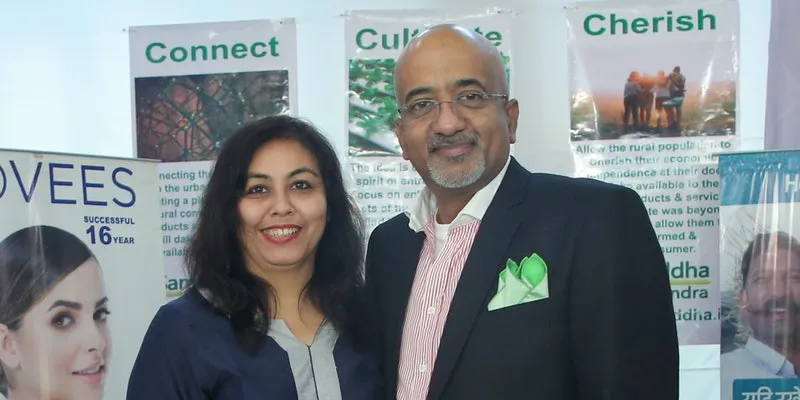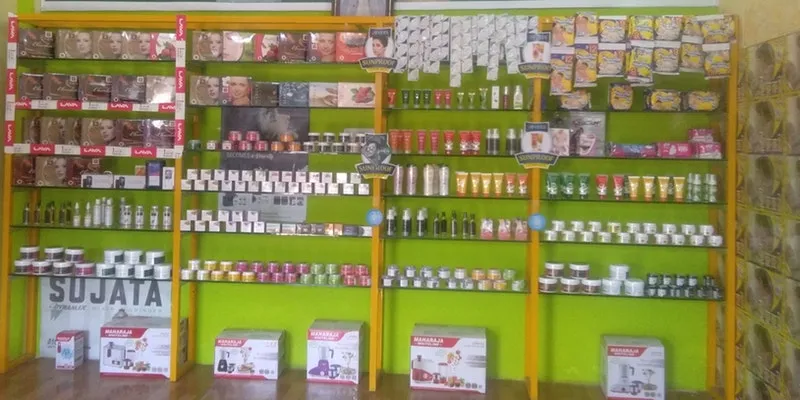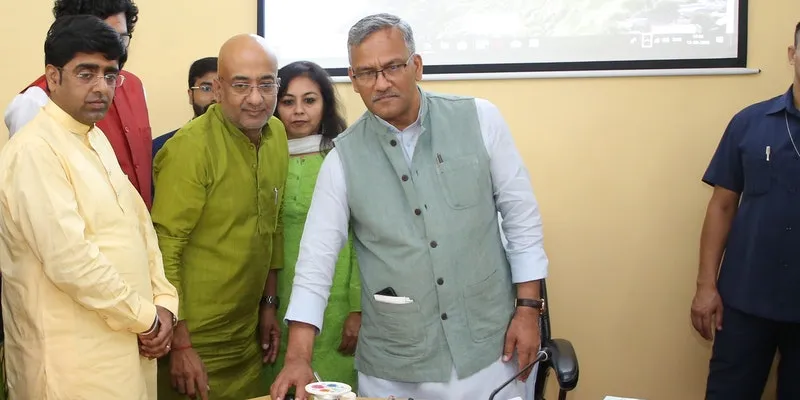With 650 centres, here’s how Sambaddha Global bridges the rural-urban divide in Uttarakhand
Sambaddha Global offers healthcare and financial services, consumer products, skill development, farming tools and machinery, and digital marketing services under one roof in each of its 650 such centres in Uttarakhand.
Krishnappa is a resident of a village in Davangere, Karnataka, and makes a living as a farmer. He makes just enough money to survive. One day, he travels 60 km from his village to get his insurance renewed. Krishnappa, like tens of thousands of villagers across the country, is deprived of technology-based services.
Moved by the plight of such people, Narayanan Rajagopalan and Anshu Kapoor launched Sambaddha Kendras in Uttarakhand in February 2019.
The kendras offer healthcare and financial services, consumer products, skill development, upgraded farming tools and machinery, and digital marketing services under one roof. The duo is now running 650 such centres in Uttarakhand.
Narayanan and Anshu say they founded the enterprise to bridge the rural-urban divide in India by bringing the latest services and technology to the rural doorstep. They also aim to provide employment opportunities to the rural youth.
The journey so far
The founders opened their first Sambaddha Kendra in Laksar, a village in Uttarakhand. Through this centre, they initially provided healthcare services to the rural people.
“Can you believe that the people of Laksar didn’t even have the basic blood test facilities?” says Narayanan. “They had to travel 40 km to the district headquarters to get their blood tested,” he adds.
At the kendra, arrangements were made to collect blood samples and the team would then take it to the district headquarters. The blood test report would be mailed to the kendra and the kendra would then deliver it to the patient’s doorstep.

Founders Anshu Kapoor and Narayanan Rajagopalan
This concept took off and it encouraged the team to add more facilities. They hit upon the idea of selling a whole range of products including FMCG products and farming machinery, making it a multi-product platform.
The promoters realised that the farmers didn’t have even the most essential goods like pesticides because of the distance they had to travel. Such products were then made available at these centres.
Besides many such kendras that were soon up and running, a couple of existing shops approached the team, and through partnerships, turned these kendras into booking points for these various products.
Business Associate Programme
Sambaddha Global provides opportunities for many graduates and post graduates in the villages who prefer to stay in the villages with their families and friends. They are called Business Associates (BAs) and are well-versed with the local culture, language and practices. Thus, they become relevant strong points for connecting the rural areas with these urban facilities. People can buy insurance, FMCGs, healthcare supplies, and other essentials with the help of these individuals.
“We equip each of these BAs with a tablet PC,” says Narayanan, adding, “Through the local media advertisements, the villagers get in touch with us and these BAs are then required to visit the homes of beneficiaries and help them with their requirements.”
The BAs, in return, have benefitted from this programme.
“I can now empathise with the rural consumers and get an in-depth insight into their aspirations as well as a definitive bend towards quality products,” says one of the associates at Aditya Nagar. “It has opened a huge potential for the rural market. There is so much that can be done,” he adds.
Kendra infrastructure
There are 650 Sambaddha Kendras in Uttarakhand. Each of these centres is equipped with internet connection, tablet PCs, shelves with touch-and-feel FMCGs like soaps, face wash, and medical products, in 700 square feet space. These kendras become single points of contact for people to avail their amenity requirements.

The Sambaddha Kendra stocked with FMCGs and medical supplies
Each kendra has about three BAs who help the customers with their needs. They are well-versed with the local culture and language and can connect with their customers well.
While people living in urban areas enjoy discounts for the essential commodities they buy, many rural places are not accessible to the e-commerce giants. To tackle this, orders for many commodities are placed with big brands, and delivered to the centre, where people can buy these goods.
Apart from ecommerce platforms, the enterprise has also tied up with a number of companies.
“We are able to negotiate a good price with suppliers,” says Narayanan, adding, “The idea is to bring in a lot of daily essential services for which they are otherwise deprived of discounts.”
The enterprise is not funded by any other investor, and works with internal resources. The franchise costs are also minimal, and the overall profits drawn are marginal. However, the people are greatly benefitting from these centres.
The kendras aren’t just shops with additional services, but also hangout spots for villagers. These villagers gather near these shops to have conversations. The enterprise uses this opportunity to get feedback from them, according to Narayanan.
“People have started opening up about their needs. Women have begun voicing their concern for need of sanitary products despite the taboo. This encourages us to bring more women into these centres. Today, we have at least one woman associate at each centre.”

Launch of a Sambaddha Kendra
Road ahead
Sambaddha Global plans to start awareness programmes for women on health and sanitation.
Narayanan also shares his concern about the education scenario in rural schools, especially the younger grades.
“In these villages, most of the students go to school for their midday meals and soon after return home. Through one of the programmes, we want to inculcate in these students, discipline of an urban student, which includes work and play, so that the whole purpose of education is not void.”
Encouraged by their success in Uttarakhand, the enterprise now aims to expand to other states by tying up with different brands. The promoters are planning to make inroads into five more states in North India and the northern part of Karnataka.
The initiative has helped bridge the rural-urban divide in Uttarakhand by bringing remote villages closer to modern technology.
(Edited by Javed Gaihlot)







